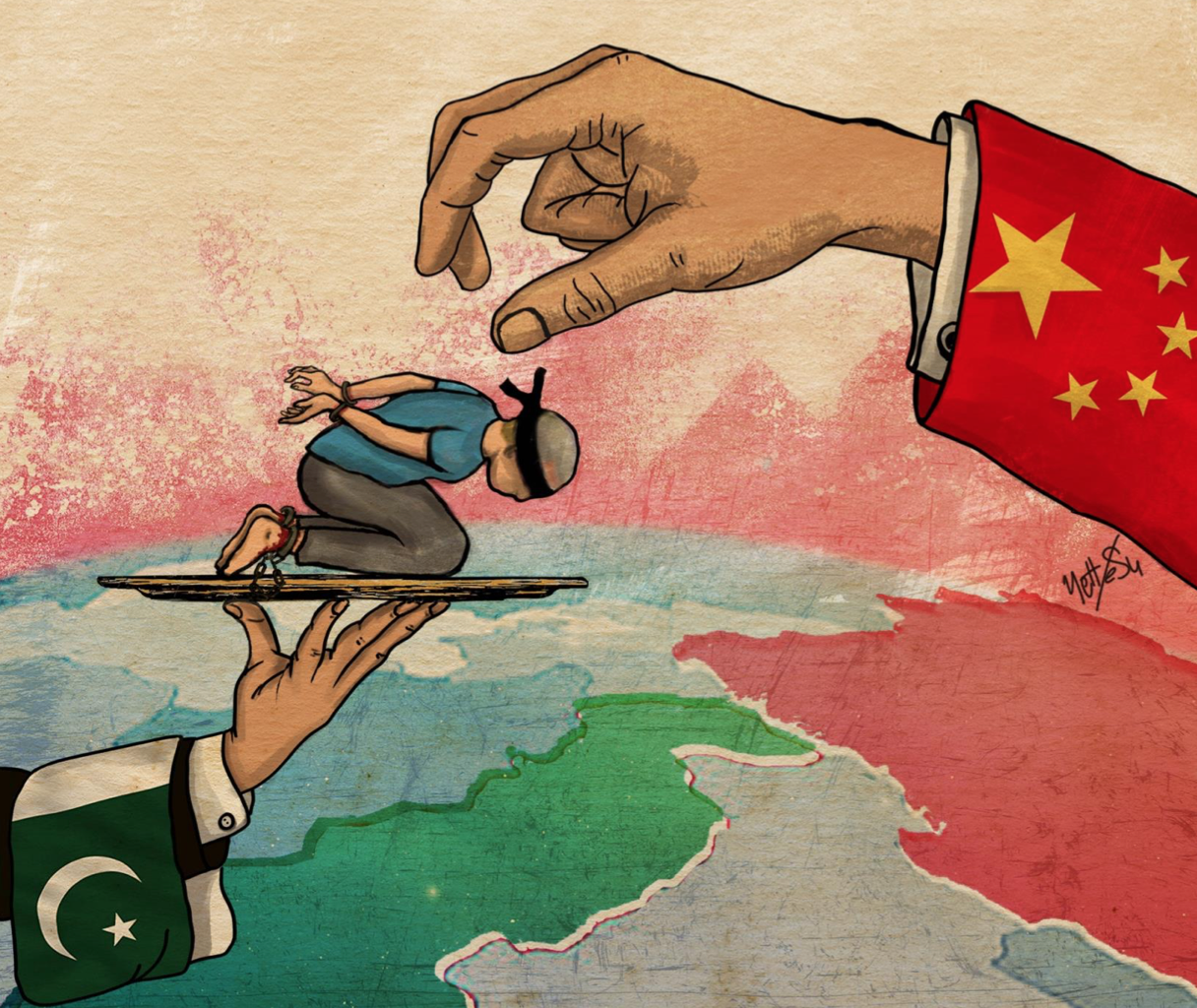“Nets Cast from the Earth to the Sky:” China’s Hunt for Pakistan’s Uyghurs
Read the full report here.
“Nets Cast from the Earth to the Sky” explores how China has targeted Uyghurs in Pakistan and Afghanistan since the late 1990s in order to silence dissent. The report distinguishes different methods by which the Chinese government represses Uyghur communities in Pakistan and Afghanistan and determines how these methods violate international human rights and legal norms. The report also chronicles China’s engagement with its fiercest ally, Pakistan, over the past 40 years in order to demonstrate how increased engagement between the two countries correlates with a growing humanitarian crisis for Uyghurs living in the region. To this end, we gathered cases of China’s transnational repression of Uyghurs in Pakistan and Afghanistan from interviews with Uyghur activists and refugees in Pakistan, Afghanistan, and Turkey, in addition to government documents and human rights reports, and Urdu and English media.
Our work draws from the China’s Transnational Repression of Uyghurs Dataset, a joint project by the Oxus Society for Central Asian Affairs and the Uyghur Human Rights Project (UHRP). From our dataset, we have identified and analyzed 21 cases of detention and deportation in Afghanistan and Pakistan, with an upper estimate of 90 reported incidents lacking full biographical records.
The PRC is able to target Uyghurs outside its borders with the help of the neighboring host governments. For example, in Pakistan China entices the government with large development projects like the China-Pakistan Economic Corridor (CPEC) in order to secure its support against Uyghurs. This report demonstrates several instances in which China rewarded Pakistan for aiding its campaign against Uyghurs. In exchange for development assistance, Pakistan signed extradition treaties, arrested individuals at China’s request, and rebuked critics of China’s harsh policies, all of which made it easier for China to continue repressing Uyghurs.
The report also illustrates how China utilizes international organizations to shape perception of Uyghurs globally. China aims to frame its campaign against Uyghurs as “counterterrorism” and uses international mechanisms and organizations to legitimize its actions, particularly in the Muslim world. These tactics also deepen security ties with countries hosting Uyghurs, allowing China to more easily target Uyghurs outside its borders.
Through its strategy of offering extravagant development projects while deepening security ties, China has successfully gained influence over Pakistan’s government and thus its Uyghur community. China is now attempting to implement this strategy in other countries with sizable Uyghur populations. As the Taliban gains territory in Afghanistan, Pakistan is portraying itself and China as facilitators of peace and development. China will use the chaos in Afghanistan to further justify its crackdown on Uyghurs, who express fear about their future in the country.
We make a number of policy recommendations to the government of Pakistan, the UN, and members of the international community, including the following:
- For governments to impose targeted sanctions on Chinese citizens responsible for acts of transnational repression through sanction mechanisms like the Global Magnitsky Act.
- For governments to increase quotas for the resettlement of Uyghur refugees, given that traditional safe havens for Uyghurs are increasingly insecure.
- For the government of Pakistan to reform or abolish laws that give intelligence groups broad authority to investigate and imprison individuals.
- For the United Nations to investigate allegations against the UNHCR office in Pakistan, given the alarming testimony that Uyghur refugees are being denied asylum services by the UNHCR office in Islamabad.




